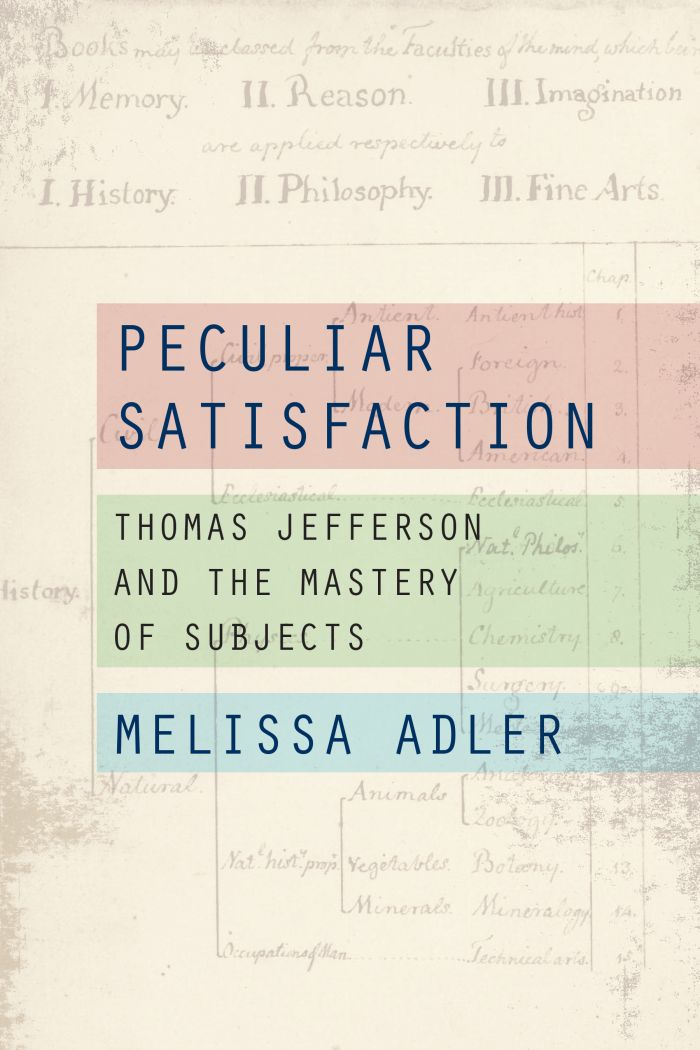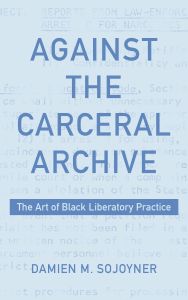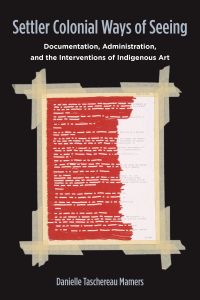Peculiar Satisfaction
Thomas Jefferson and the Mastery of Subjects

This book can be opened with

How Thomas Jefferson’s vision for knowledge shapes what we know and how we access it—and why that matters more than ever
As the United States approaches the 250th anniversary of the Declaration of Independence, Peculiar Satisfaction examines how the ideals and contradictions of the nation’s founding live on in libraries, archives, and museums. Thomas Jefferson championed an informed citizenry as essential to democracy, yet the systems he built to organize knowledge reinforced racial and ideological hierarchies that persist today.
Melissa Adler explores Jefferson’s lasting influence on public institutions, from his personal library, which became the foundation of the Library of Congress, to his archival practices in government record-keeping and his museum at Monticello as a site of colonial knowledge production. Through an interdisciplinary lens, she reveals how his methods of classification and preservation shaped national memory and democratic participation.
Drawing from archival research and critical theory, Peculiar Satisfaction exposes the paradoxes of access, exclusion, and control embedded in information systems. As censorship and disinformation threaten democracy, Adler argues that understanding these foundational structures is essential to defending the role of knowledge in public life.
Offering a fresh perspective on the ways information, power, and race have shaped American institutions, this book will engage scholars and general readers interested in how libraries, archives, and museums influence history, democracy, and collective memory and argues for a nuanced understanding of these institutions at a critical moment where disinformation and authoritarian rule threaten to undo them.
This book is a masterful tour of how information worlds – even those more than 200 years old – continue to shape our cultural and political sensibilities. Choices about what to include and exclude from an archive or a library, how to organize and arrange those items, and how we memorialize our memories and histories rarely come together in one book. Adler handles all these themes deftly and clearly. This will be of great use to cultural historians, librarians, media scholars, and Jefferson fans alike.
—Siva Vaidhyanathan, Professor of Media Studies, the University of Virginia
Melissa Adler's nuanced and original work demonstrates that history is embedded in libraries and archives, and not just between the pages of books. Traces of Thomas Jefferson show up in our cataloging and classification systems, influence our architectural decisions, and help determine what counts as history in the first place. Through rigorous engagement with Jefferson's own words, Adler puts information studies at the center of the study of United States institutions.—Emily Drabinski, Associate Professor, Queens College, City University of New York
In this sweeping, erudite, and posthumanistly-attuned exploration of the complexities of Thomas Jefferson’s information practices— at once entrenching a politics of domination and imagining ruptures that call forth new modes of freedom — Melissa Adler deftly brings Jefferson’s concerns into our present moment, where the role of robust information systems open to public use has never been more crucial, nor more threatened. Full of surprises found in the archives, Adler makes an urgent case for the value of the Library of Congress and libraries more generally in our political and cultural life.—Nathan Snaza, author of Tendings: Feminist Esoterisms and the Abolition of Man




